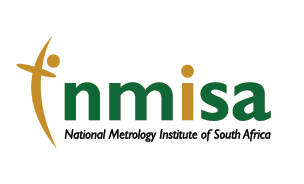About
Access to food that is both safe and nutritious is a basic human right. This is interlinked with our right to a safe and healthy environment, free of pollution and harmful contaminants. Accurate and reliable measurements help our country to safeguard both the food we consume and the environment we live in. Furthermore, accurate measurements help to remove technical barriers to trade, particularly in our expanding agroprocessing sector.
The NMISA Organic Analysis Section supports South African trade and industry through the provision of reference materials, measurements and proficiency testing schemes. These products and services are the tools that chemical testing laboratories use to ensure the quality of the measurements they deliver in support of food safety; environmental pollution monitoring and law enforcement
Key Facts
The Organic Analysis Section is responsible for the research, development and application of analytical techniques such as titrimetry, gas chromatography, liquid chromatography and mass spectrometry for the accurate identification and quantification of organic compounds in various matrices.
The section’s focus to date is predominantly on supporting the agro-processing sector, specifically applications in environmental pollution monitoring and food contaminant analysis, of water; soil; sediment; biological fluids; and foods such as maize, fruit, meat and milk respectively. Other sectors where measurement capabilities have been established include biofuels, forensic blood alcohol and polymer analysis.
The core capability of value assigning organic calibrators has been developed and benchmarked internationally. The section is now well-positioned to produce certified organic calibration solutions that will shorten the measurement traceability chain for Africa.
Dissemination to industry is provided through services encompassing the development of these reference measurements applied to the production of Certified Reference Materials (CRMs), and reference values for Proficiency Testing Schemes (PTSs).
The laboratory is accredited to the following international standards:
- ISO/IEC 17025:2017 for calibration and testing,
- ISO 17034:2016 for reference material production and
- ISO 17043:2010 for the provision of proficiency testing schemes.
How we can help
Services currently offered by the Organic Analysis Section include:
Training on quantitative organic analysis and method validation
- Certified reference material solutions
Certified matrix reference materials
Mycotoxins in maize
Aflatoxins in peanuts
Reference Materials for quality control (from PT scheme surplus)
PT schemes for:
Food and beverage testing (chemical additives, contaminants, residues and nutritional content)
- Mycotoxins, pesticides, toxic and nutritional elements, amino acids
Water testing (chemical contaminants and residues)
Forensic testing
Development of National Measurement Standards
Organic compounds and solvents - Purity Analysis
The value assignment of high purity organic chemicals is also conducted in this laboratory and measurement services are available for determining moisture content (KF coulometric titration); residual solvents (headspace GC-MS), structurally related impurities (liquid/gas chromatography with general detection and mass spectrometric techniques); non-volatile residues (thermal gravimetric analysis), thermal properties (DSC, TGA) and elemental analysis (CHNS and O), dynamic sorption vapour balance (for determining moisture uptake by materials) and quantitative proton NMR measurements.
These techniques are applied to the production of Certified Reference Material solutions that are typically used for analytical instrument calibration applied in liquid and gas chromatographic analyses.
Food analysis – safety and nutritional health
Ensuring consumer food health and safety is an international concern supported by numerous legal regulations. For this reason, the presence of contaminants and nutritional content in food is routinely monitored. Whether domestically produced, imported or exported, agricultural commodities need to be accurately tested by competent analytical laboratories.
The NMISA Organic Analysis Section endeavours to assist South African analytical laboratories through the provision of reference measurement services to clients and for PT schemes and production of reference materials. These tools can all be used to demonstrate laboratory accuracy and competency as required for ISO 17025 accreditation.
Current measurement services include multiple mycotoxins in maize; aflatoxins in nuts; ochratoxin-A in wine; melamine in milk; pesticide residues in water, fruit and vegetables; veterinary drug residues in milk and meat; and protein content and quality (amino acid content) in milk and grains.
Green Economies: Environmental Pollution monitoring analysis
Monitoring toxic persistent organic pollutants (POPs), in particular dioxins, PCBs, PAHs and pesticides, involve complex measurements. There is currently no routine South African/African analytical laboratory fully equipped with the instrumentation and skilled staff required to analyse dioxins. To assist these labs in finding a cost-effective, but still accurate, alternative for monitoring these pollutants, the NMISA has started setting up a dioxin analytical POPs facility in 2017/18.
Since 2005, the NMISA organic laboratory has established analytical expertise in the analysis of dioxins and other POPs in biotic and abiotic matrices, applying comprehensive GCxGC-TOFMS. This capability has recently expanded to include targeted analysis applying GC-MS/MS and GC-API-MS/MS. Collaboration with international institutions has resulted in various lectures and peer-reviewed publications that have placed South Africa in the international arena as having a dioxin analytical capability.
Forensic Analysis
Driving under the influence of alcohol is a criminal offence. The accuracy of the measurement result produced is critical. Should the driver be found guilty they would have a criminal record for life. The NMISA Organic Analysis Section continues to support the South African National Department of Health (NDOH) forensic pathology laboratories with the provision of certified reference materials of the highest accuracy for use in the blood-alcohol analysis. CRMs provide laboratories with a means to establish traceability for their measurement results. The use of NMISA high purity calibration CRMs as solutions (ethanol and sodium fluoride), provide traceability for blood alcohol measurements. These ethanol calibration solutions are produced in 25 mL and 500 mL format, the latter specifically for calibration for breathalysers using the water bath method.
The team
The laboratory consists of 12 scientists and 2 postgraduate bursars/interns with a collective core expertise in:
- Chromatography (GC, GCxGC, HPLC, UPLC, GPC)
- Mass spectrometry (MSD, TOFMS, MS/MS)
- Spectroscopy (FTIR, UV, 'H-NMR)
- Titrimetry (Potentiometric, Photometric, KF Volumetric and KF Coulometric)
- Thermal Analytical techniques (DSC, TGA, elemental analysis)
- Advanced Sample preparation techniques (PLE, MAE, SPE, d-SPE and LLE)
- Accurate quantification (d-IDMS)
